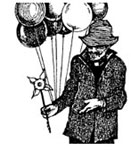
On Sex Education for the Young
HARVARD DIARY
About five years ago my wife, Jane, a high school teacher of English, and I were visited by two friends of ours, the parents of a nine-year-old boy and a 14-year-old girl. Both the mother and father were more than a little upset by what was happening in the elementary school their son attended and in the high school in which their daughter had just begun classes. The boy was coming home with vivid accounts of human sexuality, including its variations, if not (as many would have it) peculiarities or aberrations. The teenaged girl was attending classes in which various kinds of contraceptive devices or procedures were being discussed — and along with her classmates, she had learned that condoms were available in a machine located in the school, a so-called “public health initiative.” The parents were both upset — and, frankly, a little ashamed to be upset. They were anxious to indicate, right off, that they were not “uptight,” were not “prudes,” had no claim to being “puritans” — and, of course, we knew them to be thoughtful, sensible people, he a lawyer, she an old friend of my wife’s and a one-time teaching colleague of hers.
As we talked, I began to realize that their comments about themselves, so uncharacteristic in the sense that these were not a pair of egoists, were clearly meant to fend off criticism, either already sent their way, or soon to arrive, so they might fear. In that regard, I can still hear both of them telling me what they together had experienced at the hands (the mouth) of someone called the high school psychologist, who in addressing a group of parents with reservations about the “sex education curriculum” had referred to its opponents as somehow “resistant” to what he regarded as (called) “emotional insight” — and by implication, not as “progressive” and “enlightened” as these parents clearly considered themselves to be.
Not that I hadn’t experienced before, and firsthand, what they had been going through — Lord, as I sat with them, I was flooded with memories of similar meetings with other parents, and with a few of those so-called “experts” who teach “sex education” courses in our nation’s schools. I guess I was somewhat protected by my occupation — a child psychiatrist and a pediatrician. I’m supposed to know some things about children, but, in fact, years ago I kept hearing about AIDS and teenage pregnancy as if my own elementary school children, my teenage children, were in imminent danger of both — unless, of course, they absorbed thoroughly the lessons being offered them, again, in the name of “sex education,” in the name, too, of “a progressive, public health-oriented curriculum,” another mouthful of words spoken, I noticed, with no felt embarrassment that the limits of modesty were in any danger of being tested.
You May Also Enjoy
In the early 1980s I spent a lot of time in Brazil, trying to learn…
For many years Ralph Ellison’s Invisible Man has been a mainstay, a highlight of the…
About five years ago my wife, Jane, a high school teacher of English, and I…

